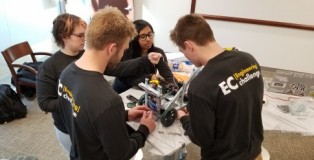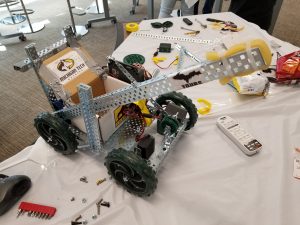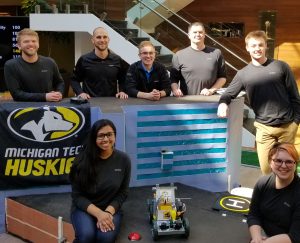
HOUGHTON — According to one study, more than 90 percent of U.S. medical expenses are spent on patients with chronic diseases. According the Center for Disease Control and Prevention, $190 billion are spent on cardiovascular disease that in many cases, patients are required to wear a heart monitor day and night. For those patients, heart monitoring will soon become easier, more comfortable, and more convenient, thanks to Michigan Technological University Researcher Ye (Sarah) Sun.
 A team of
A team of 
